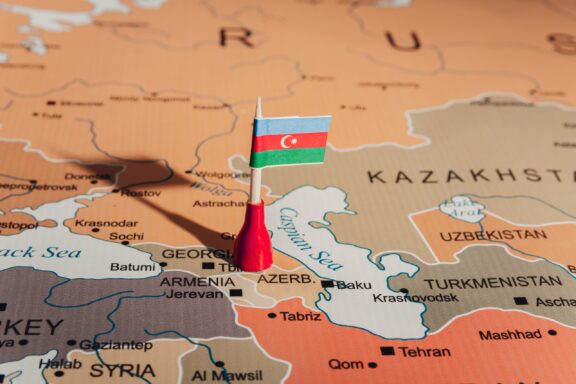September 2024
Global Elections Update: Azerbaijan
Region: Europe
Author: Will Kinsman
On September 1st, Azerbaijan held parliamentary elections. The elections were originally slated to take place in November but were brought forward by Azerbaijan’s President Ilham Aliyev to avoid them overlapping with the COP 29 UN Climate talks, which Azerbaijan will be hosting this November.
Overview: On September 1st, Azerbaijan held parliamentary elections. The elections were originally slated to take place in November but were brought forward by Azerbaijan’s President Ilham Aliyev to avoid them overlapping with the COP 29 UN Climate talks, which Azerbaijan will be hosting this November. The elections are the first parliamentary elections held following Azerbaijan’s retaking of the disputed territory of Nagorno-Karabakh last year, which could potentially mark the beginning of the end of the long-standing dispute between Azerbaijan and Armenia over the region.
Results: President Ilham Aliyev’s ruling New Azerbaijan Party retained its majority in Azerbaijan’s National Assembly (Mili Mejlis), securing 68 out of 125 seats, while most remaining seats went to a constellation of nominally independent parties that broadly back the Aliyev government. At least 50 organizations participated in monitoring the election with the Organization for Security and Cooperation (OSCE) characterizing the elections as “devoid of real competition amid diminishing respect for fundamental freedoms but efficiently prepared.” Already, a group of independent candidates have called on Azerbaijan’s Central Election Commission to launch an investigation into electoral fraud.
Outlook: The recent election—while ostensibly held early to avoid a scheduling conflict with the upcoming COP29 talks in Azerbaijan—appears to have been strategic on the part of President Aliyev. The election has coincided with an ongoing crackdown by the Azeri government on dissenting voices. For the Aliyev government, the elections serve to signal to those who believed that the end of hostilities with Armenia would lead to an opening of Azeri politics that it does not intend to cede control.
